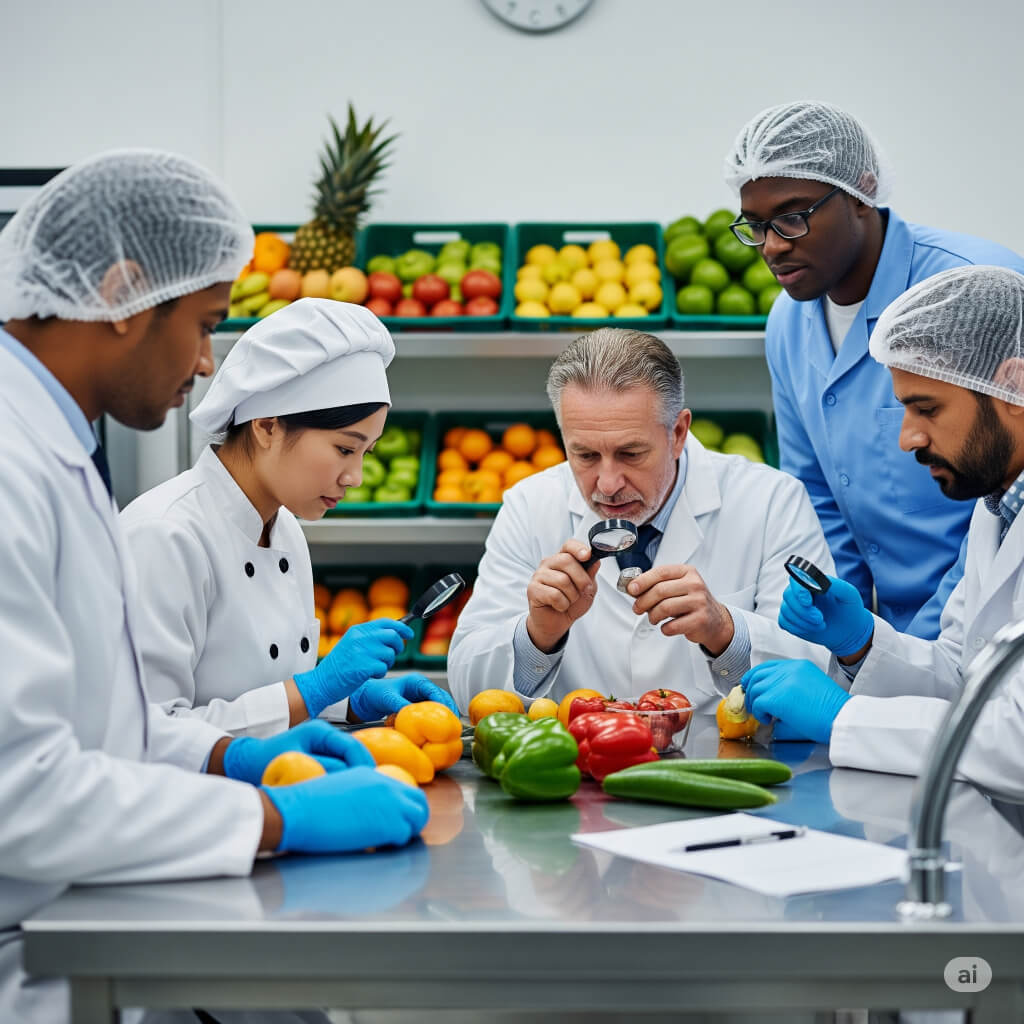Ensuring Food Safety: A Crucial Mission for Health and Well-being
Food safety is a fundamental aspect of public health. Every year, millions of people suffer from food borne illnesses due to contaminated or improperly handled food. As an NGO committed to community welfare, we aim to raise awareness and promote practices that ensure the safety of the food we consume.
The Importance of Food Safety
Food safety encompasses all practices that preserve the quality of food to prevent contamination and foodborne illnesses. Safe food is essential for maintaining good health, enhancing nutritional outcomes, and supporting economic development.
Common Food Safety Hazards
There are several types of hazards that can compromise food safety:
– Biological: Bacteria, viruses, and parasites
– Chemical: Pesticides, food additives, and toxins
– Physical: Foreign objects such as glass, metal, or plastic
Awareness of these hazards is the first step towards prevention.
Best Practices for Food Safety
- Maintain personal hygiene: Always wash hands before handling food.
2. Cook food thoroughly: Ensure meats and poultry are cooked to safe temperatures.
3. Avoid cross-contamination: Use separate utensils and surfaces for raw and cooked foods.
4. Store food properly: Refrigerate perishable items promptly.
5. Be mindful of expiration dates: Always check labels before consumption.
Role of NGOs in Promoting Food Safety
NGOs play a vital role in educating communities about safe food practices. Through workshops, public awareness campaigns, and collaboration with local authorities, NGOs can help reduce the incidence of foodborne diseases and improve overall public health.
Conclusion
Food safety is a shared responsibility that involves producers, suppliers, regulators, and consumers. As an NGO, we are committed to fostering a culture of food safety that benefits everyone. Together, we can ensure that the food on our plates is safe, nutritious, and healthy.
Global Perspective on Food Safety
Food safety is a global concern, with organizations such as the World Health Organization (WHO) and the Food and Agriculture Organization (FAO) working together to develop international standards. The Codex Alimentarius, a collection of internationally recognized standards, guidelines, and codes of practice, serves as a global reference point for consumers, food producers, and regulatory agencies. Adopting and aligning with these standards helps countries ensure the safety of their food supply and participate in global trade.
Challenges in Food Safety Implementation
Despite the importance of food safety, several challenges hinder its effective implementation, especially in low-income and rural areas:
– Lack of awareness and education
– Insufficient infrastructure for food storage and handling
– Limited access to clean water and sanitation
– Inadequate regulation and enforcement
Addressing these challenges requires a concerted effort from governments, NGOs, and communities.
How You Can Help
Everyone has a role to play in promoting food safety. Here are a few ways you can contribute:
– Educate yourself and others about safe food handling practices
– Support local NGOs and initiatives focused on food safety
– Advocate for better food safety regulations and enforcement
– Volunteer for food distribution and hygiene awareness programs
By taking small steps, you can make a big difference in creating a safer food environment for all.


Leave a Reply
You must be logged in to post a comment.